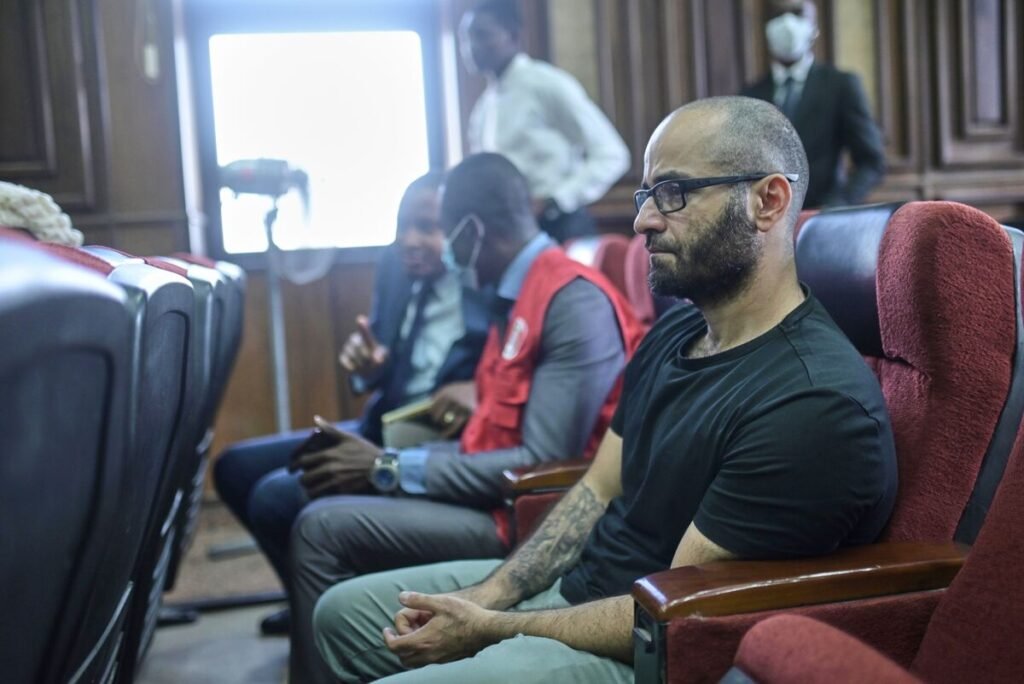TL:DR,
- Binance license application in Nigeria remains stalled due to Tigran Gambaryan’s detention, creating unprecedented regulatory compliance challenges for the global crypto exchange.
- Nigeria’s evolving cryptocurrency regulations present complex hurdles for international exchanges seeking to establish compliant operations in Africa’s major crypto market.
- The situation highlights broader challenges facing global crypto businesses navigating emerging market regulations while maintaining user trust and operational continuity.
With SEC regulations becoming a must-have within Africa, obtaining a Binance license in Nigeria has proven quite the conundrum.
Their efforts to align with Nigerian cryptocurrency regulations depend heavily on Tigran Gambaryan’s being released from detention. This situation highlights both the complexity and the strategic decisions Binance must take to advance operations there.
Binance License Stalled By Employee Release
Tigran Gambaryan’s detention has become a key issue in acquiring a Binance license in Nigeria. He plays an essential part in both operations and regulatory strategies within the firm’s establishment in West Africa. Thus, his release must become one of the conditions necessary to progress with the registration process.
Current Status of Binance’s Exchange Registration Requirements
The global crypto exchange has made it clear it has plans to align with Nigerian cryptocurrency regulations; however, Tigran Gambaryan’s release is non-negotiable. According to the firm, his freedom directly affects the process of aligning the firm’s features to updated SEC regulations.
RELATED: Nigeria’s SEC and Quidax Host Powerful Blockchain Training Series
Binance intends to become a fully licensed crypto exchange within the region; however, key articulation with its senior management is required throughout the application process. The exchange is based on a hard corner with showcasing the unusual intersection of legal proceedings and business licensing.
Additionally, the firm has voiced numerous doubts regarding the SEC regulations, suggesting its guidelines might need more robust legal support with in-depth insight from both regulators and issuers. Hastily writing up exchange registration requirements often leads to an opposite effect, forcing many to avoid what could be Africa’s largest crypto hotbed.
Understanding Nigeria’s SEC Regulations Framework.
Recently, Nigeria’s Securities Exchange Commission has granted licenses for local digital asset exchanges such as Quidax and Busha Digital to operate legally. Yet, the absence of additional partakers suggests further issues surrounding registration processes.

Tigran Gambaryan’s detained by Nigerian authorities.[Photo:DL-News]
Binance has yet to budge and is under the SEC’s glass lens to address the “unresolved issues” surrounding Gambaryan’s detention. This will also delve more into whether or not the Binance license will be issued.
The firm is still a favourite among Nigerian traders who often overlook any regulatory hurdles. Its features, wide array of services and strong market presence continue to draw users, a testament to why Binance is Africa’s go-to exchange.
Strategic Implications for International Crypto Businesses
While the detention and the halted Binance license application remain a sore spot, the firm’s representative shave indicated their intention to pursue registration once the existing issues are resolved.
Nigeria is still Africa’s leading crypto hub, having the highest transaction volume; it’s a space the firms cannot pass on. According to their statement, once Gambaryan’s situation simmers down, it will open more doors to engage with Nigeria’s SEC. To show good faith, they have outlined several initiatives towards future registration and operations.
While the timeline for such resolutions remains uncertain, the Binance license is an anticipated plus, solidifying the exchange in Africa’s Web3 community.
Market Impact and User Confidence Considerations
Nigeria is among Africa’s top three crypto countries. The region has transformed into a DeFi hub, pioneering the likes of Flutteraves, one of Africa’s unicorn startups. Unfortunately, as the nation steadily transitions into a crypto-friendly region, some views differ regarding Gambaryan’s detention.
Users who have grown accustomed to Binance’s services are now stranded, wondering if their stored cryptocurrency will be accessible or will the firm will vanish. While competing licensed crypto exchanges may profit from the vacuum, user trust will be significantly impacted. It presents a unique perspective, especially since most crypto users often value platforms with stable and reassuring services. The extended licensing process, complicated by legal proceedings, creates the kind of uncertainty most African flee from in a heartbeat.
Alternatively, this will cause a rise in unlicensed crypto platforms, with most offering features that truly accommodate the main essence of digital assets.
RELATED:Legal Loophole or Progress? Unpacking the SARB Exchange Control Case Ruling.
The quest for a Binance License in Nigeria has shifted into a bureaucratic procedure heavily relying on the release of one man. With Nigerian cryptocurrency regulation maturing, sorting out this issue soon prevents added headache for regulators and the exchange. Right now, all eyes are on what Binance will do next. Will it continue its operations, or will it be forced to cut ties and try its luck in other regions like Kenya or South Africa?

